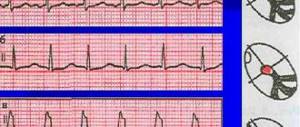Adults and children have to suffer from colds and ARVI at least two or three times every year, and sometimes more often. Infection usually occurs in spring or autumn. Doctors prescribe a number of medications for treatment (it is not advisable to do this on your own, so as not to harm yourself). In case of serious complications - for example, when a bacterial infection joins a viral infection - antibiotics are prescribed for ARVI.
In case of complications of ARVI, the doctor may prescribe antibiotics
Complications and bacterial infections
Colds are traditionally caused by pathogenic bacteria, while acute viral infections are caused by viruses. When an acute respiratory infection is diagnosed, it means that the nature of the disease has not yet been determined.
Even the most effective antibiotics for ARVI will be powerless if the disease is caused by viruses. On the contrary, you can harm yourself and complicate the situation.
In the case of acute respiratory viral infections, doctors primarily prescribe antiviral drugs, as well as medications to treat symptoms. You can take interferon inducers so that the body can defeat the infection on its own. Although in the case of the bacterial nature of the disease or its advanced form, therapy requires the use of more powerful drugs.
Unfortunately, in most cases the immune system can no longer cope with complications on its own. This is where the need arises to know which antibiotic for ARVI can be considered the most effective in adults.
Treatment of sore throat, sinusitis, pneumonia, otitis media and meningitis is usually not possible without antibiotic drugs.
Some features of diseases
When a cold (or acute respiratory infection) occurs, the body is attacked by viruses. Nasal congestion appears, the throat becomes sore and red, and a runny nose overcomes. During this period, the immune system actively fights the disease, fever and chills appear.
The best treatment at this time is not antibiotics. For flu and colds, antiviral drugs are used at the initial stage. The most common of them are “Anaferon”, “Laferon”, “Reaferon”, drops and suppositories. Medicines containing natural herbal ingredients include “Proteflazid” and “Immunoflazid”.
When should you take antibiotics?
It is clear that treatment of ARVI in adults with drugs such as antibiotics should not be prescribed independently. This responsibility can only be assumed by a qualified medical professional.
Even making a diagnosis of sinusitis requires an examination by a doctor and research in a bacteriological laboratory (a swab is taken from the nose and larynx). Unfortunately, in some hospitals you have to wait several days for the test result.
And time is very valuable in the case of such serious diseases! The longer you delay making a diagnosis and starting treatment, the more difficult it will be to fight the infection.
Should you take antibiotics “just in case”? No, these are not medications that can be used for preventive purposes. At the very least, this should not be done without the appropriate approval of a physician.
Some people mistakenly believe that by starting to take antibiotics if they have a fever, they will avoid complications. On the contrary, this only increases the likelihood of serious consequences, since treatment at the onset of the disease should be carried out with antiviral and symptomatic agents.
Here are the signs that if you notice them in yourself (and, especially, in your child), you need to worry and be prepared for the doctor to prescribe antibiotic treatment:
- If you are being treated for ARVI, but do not feel better on the fifth day. Or there was temporary relief, followed by a sharp deterioration.
- With a sudden increase in lymph nodes.
- The duration of the cough is more than ten days.
- The appearance of purulent discharge from the nasal cavity, purulent inclusions in the sputum.
- Severe migraine, pain in the maxillary sinuses.
- Pain in the ears, discharge of fluid.
Especially the listed signs should be alarming when it comes to the health of the child.
When are the described medications prescribed? Only after the doctor examines the patient, perhaps he will send him for additional examinations and confirm the bacterial nature of the disease. Actually, this is the correct answer to the question: can ARVI be treated with antibiotics?
Cold symptoms
The concept of “cold” hides more than a dozen diseases caused by various harmful microorganisms.
High temperature is the main symptom of a cold
But all these microorganisms have one similarity - they lead to the same symptoms:
- headache;
- body aches;
- chills;
- discomfort in the throat;
- temperature not exceeding 37.5 degrees.
In some cases, the symptoms go away on their own, the disease recedes, but this can only happen to those people who have excellent immunity and are able to cope with the disease on their own.
Such hardened people, with strong immunity, do not need to take antibiotics for colds. Even if they are inexpensive and effective, there is no need to rush.
On average, cold symptoms last from 2 to 7 days. They can come in different combinations and each person experiences them differently.
If not treated properly, complications are possible - sinusitis, sinusitis, therefore, it is important not to start the disease, but to treat it.
What medications can be recommended?
Among other things, it is necessary to note which antibiotics help adults and children with acute respiratory viral infections. It will not be possible to list everything that is offered in modern pharmacies, and there is no need to. The most effective and common drugs should be named.
Flemoxin Solutab is not only useful in the treatment of ARVI, but even tastes good
Flemoxin Solutab
This antibiotic belongs to the penicillins. It is taken twice a day (sometimes three times).
We also recommend: What to take at the first signs of ARVI
In form, these are usually tablets that dissolve in water or dissolve.
By the way, the taste of the drug is very pleasant (fruity), which makes it easier for children to use.
To prepare the suspension, the tablet is dissolved in 100 milliliters of water.
The exact dosage is determined by a medical specialist. Typically, he takes into account:
- body weight;
- patient's age;
- individual characteristics of the body;
- course of the disease.
Separately, we should talk about dosages:
- The drug, by the way, is allowed even for the smallest children, but they are prescribed a maximum of 60 milligrams per day and no more.
- Children from one year to three years of age are given 250 milliliters twice a day.
- From three years to five years of age, you can drink the same dosage as indicated above, but three times a day.
- For children under 10 years old, 375 milligrams is enough.
- But for adults, 1500 milligrams per day is enough.
Is ARVI treated with this antibiotic? Quite, but only in cases where it is prescribed by a qualified medical specialist.
Amoxiclav
We are talking about a combined semi-synthetic penicillin, which can be taken to treat ARVI in adults and children.
It is offered in a variety of forms:
- in the form of a dry powder from which suspensions are made;
- in tablets;
- in powder form from which oral drops are made;
- in the form of a dry substance from which injections are diluted.
To avoid making mistakes in the dosage (which you should never do if you don’t want problems for yourself), use measuring spoons (as a rule, they are offered with the medicine).
- For children starting from the age of three months, half a teaspoon three times a day is enough.
- From one year to seven years you need to take one teaspoon - again three times a day.
- Children under 14 years of age are usually prescribed a couple of spoons of the suspension three times a day.
- Adults take this drug in tablet form.
When to take this antibiotic? As is the case with other similar drugs, after prescription by a doctor.
Ecoclave
Here is another drug from the penicillin family. It is available in tablet form, as well as in the form of a dry substance, from which suspensions should be mixed.
The exact dosage is determined by a medical specialist, although there are certain standards:
- Children, starting from three months of age, need to drink 30 milligrams per kilogram of weight twice a day.
- Adults take about 750 milligrams per day, although this varies depending on weight.
The duration of the therapeutic course is approximately five days.
This antibiotic is often prescribed for complications of acute respiratory viral infections, infections of the ENT organs, and infectious lesions of the lower respiratory tract.
The absence of side effects makes it possible to take Augmentin even by children
Augmentin
Augmentin is another penicillin antibiotic that can be given even to a child for ARVI. Pharmacists offer it in the form of tablets, diluted dry substance (for subsequent injections) and powder from which suspensions are made.
It is clear that children are given a suspension, which, by the way, is incredibly simple to prepare: pour boiled water into the medicinal bottle up to the indicated mark.
The solution is stored for seven days.
As for the required dosage, it is determined by the doctor, but the approximate standards are as follows:
- From the age of two to 12 years, you need to drink 40 milligrams per kilogram of weight three times a day.
- For everyone over 12 years of age, the drug is prescribed in tablets. Usually one tablet three times a day is sufficient.
Is it worth taking this medicine to treat acute respiratory viral infections? If a doctor prescribes it, then it’s even necessary.
Cefuroxime Axetil
This drug belongs to the cephalosporin family. In what cases is it prescribed? For the treatment of severe infections - especially those that affect the upper respiratory tract (such as bronchitis, sinusitis, pneumonia).
We also recommend: Polysorb for influenza and ARVI
In pharmacies, the medicine is offered in the form of tablets, as well as dry powders from which injection solutions are made.
- For children, 30-100 milligrams per kilogram of weight is enough (the exact dosage is determined by a physician).
- Adults are prescribed 250-500 milligrams (in tablets) per day (the dose is divided into two doses with at least a five-hour break).
The treatment course is traditionally about 10 days, but can be extended or, conversely, reduced at the discretion of the doctor.
Macropen
The prescription of this macrolide antibiotic for ARVI and influenza also occurs quite often. It is also recommended to take it for sore throat, sinusitis and bronchitis.
Allowed for children from the age of three. However, sometimes doctors give this medicine to babies, but in the form of a suspension rather than tablets (3.75 milliliters if the weight does not exceed 5 kilograms).
In tablets, the dosage is:
- 30-50 milligrams per kilogram of weight for children;
- 400 milligrams per day for adults.
Side effects such as dizziness and redness of the skin are possible. But, as a rule, this soon passes.
The duration of the therapeutic course is from a week to 10 days.
Ceftriaxone
For influenza and ARVI, a drug such as Ceftriaxone is also prescribed.
Ceftriaxone helps treat pneumonia
Here are the main indications for its use:
- Pneumonia as a complication of influenza.
- Lung abscess.
- Sore throat in purulent form.
- Bacterial diseases affecting the genitourinary system.
- Meningitis, which is bacterial in nature.
Why do doctors prescribe this antibiotic? It successfully copes with anaerobic as well as gram-positive bacteria. How quickly does it work? It is quickly absorbed in the human body and, accordingly, brings a positive effect. So it should be taken if the doctor prescribes the appropriate prescription.
However, there are certain contraindications to the use of Ceftriaxone:
- Liver failure, hepatitis.
- Kidney problems.
- Cardiovascular diseases
- Individual intolerance.
Tetracycline
The presented antibiotic successfully copes with bacteria that affect the respiratory tract and urinary organs:
- Per day, it is enough to take one 250-milligram tablet twice (sometimes three times) a day, so that there is at least a five-hour interval between doses.
- Children aged eight and over should take half a 200-milligram tablet twice daily after meals, leaving at least a six-hour interval between doses.
Children are also allowed to give Tetracycline in syrup form, 15 drops twice a day. The therapeutic course is about a week (although this depends on the specific disease and its degree).
What do you mean by a cold?
The main provocateurs of colds are various types of viruses, which, when entering the human body through the respiratory tract, provoke the launch of complex processes.
The virus enters the body through the respiratory tract and begins to destroy it.
Viruses that cause colds find a medium for reproduction in the human body, using the nutrient medium of the cells, they literally force the cells to work for themselves.
Gradually, the immune system weakens, the cells become defenseless, thereby creating favorable conditions for the proliferation of other microorganisms.
In its classic manifestation, a cold develops gradually. At the initial stage, a sore throat appears, then a runny nose appears.
At the first symptoms, many people go to pharmacies in search of antibiotics for colds, which are effective and, of course, inexpensive.
In this case, treatment with antibiotics is unjustified; the immune system must try to overcome the disease on its own. Only if the symptoms worsen should you think about taking such drugs.
Don't miss one of the most useful articles about:
Nagging pain in the lower abdomen in women - causes
Broad spectrum antibiotics
All of the above drugs are broad-spectrum antibiotics and are suitable for the treatment of acute respiratory viral infections and influenza, but only in cases where they are prescribed by doctors. Which one is better to take and on what day is also up to a medical specialist to decide. But don’t forget to read more information about the drug that will be prescribed to you - about indications for its use and contraindications, reviews from other users and other doctors.
Remember that a diagnosis of acute respiratory infection does not mean the need to immediately take antibiotic drugs. With the help of these drugs, as a rule, almost any complication of ARVI is treated, however, when the first symptoms appear, symptomatic and antiviral drugs are usually prescribed.
A common runny nose, as well as a cough, cannot be treated with such strong drugs, otherwise there will be some side symptoms and a worsening of the condition.
Don't self-medicate! Antibiotics can only be prescribed by a doctor
But with serious problems, these drugs - with the right selection and appropriate dose - cope with "five plus". At the same time, do not forget about the need for parallel use of probiotics so that the body does not suffer too much from the side effects of these drugs.
Possible side effects
An antibiotic prescribed for a cold will certainly harm an adult less than a child. However, this potent drug can cause a number of side effects, such as rash, nausea, vomiting, headaches and other unpleasant symptoms.
If an antibiotic is used uncontrolled, it can cause the following reactions in the body:
- allergic rashes;
- intestinal dysbiosis;
- resistance of bacteria to a certain type of drug.
Most often, allergic manifestations occur after taking penicillin antibiotics. If a rash or other discomfort occurs after taking the medicine, it is better to stop taking it and consult a doctor.










